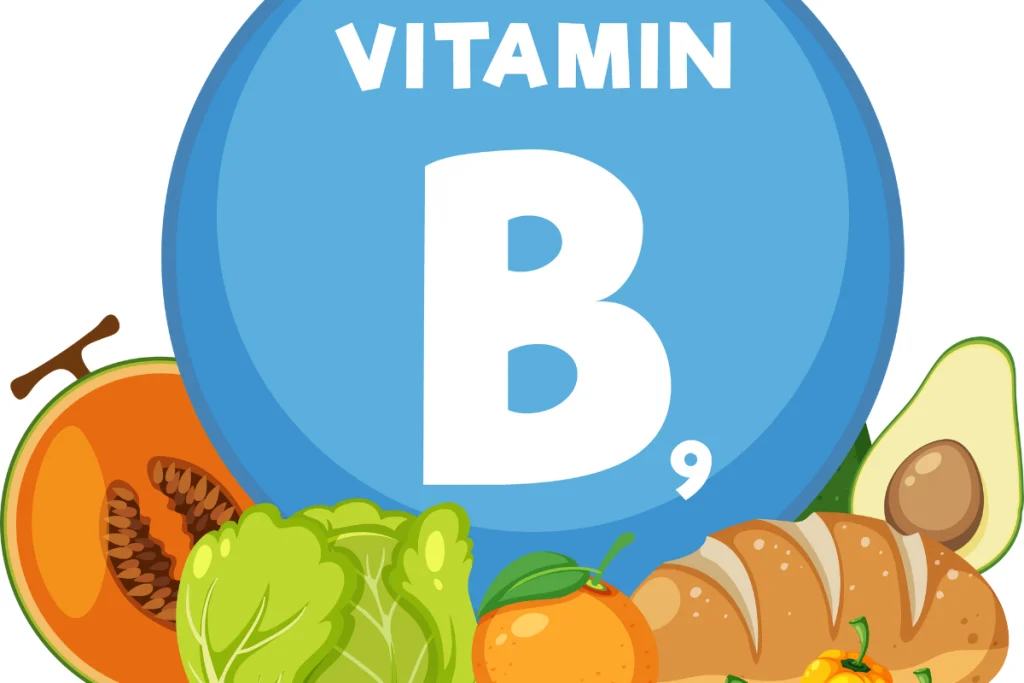Folate, also known as Vitamin B9, is a vital nutrient that plays a crucial role in maintaining overall health and well-being. This water-soluble vitamin is essential for numerous bodily functions, including DNA synthesis, cell division, and proper brain function. In this article, we will explore the many benefits of folate, its sources, and the importance of maintaining adequate levels in the body.
The Benefits of Folate
Folate is indispensable for numerous physiological processes. One of its primary functions is to aid in the synthesis of DNA and RNA, the genetic material in our cells. This makes folate particularly important during periods of rapid growth, such as pregnancy and infancy, as it supports the development of the fetus’s neural tube, which later forms the brain and spinal cord.
Another critical role of folate is in the production of red blood cells. Adequate levels of Vitamin B9 help prevent anemia, a condition characterized by a lack of healthy red blood cells, which can lead to fatigue, weakness, and other health issues. Folate also plays a significant role in the metabolism of amino acids, the building blocks of proteins, further highlighting its importance in maintaining overall health.
Folate and Heart Health

Folate is also linked to cardiovascular health. It helps to regulate homocysteine levels in the blood, an amino acid that, in elevated amounts, can increase the risk of heart disease. By converting homocysteine into other benign substances, folate reduces the risk of cardiovascular problems, making it a vital nutrient for heart health.
Sources of Folate
Folate is naturally present in many foods, and it is also available in the form of dietary supplements and fortified foods. Rich dietary sources of folate include leafy green vegetables (such as spinach and kale), legumes (beans, lentils, and peas), and fruits (particularly citrus fruits). Whole grains, nuts, and seeds are also good sources of this nutrient. For those who may not get enough folate through their diet, folic acid supplements are a reliable option to ensure adequate intake.
Recommended Daily Intake
The recommended daily intake of folate varies depending on age, sex, and life stage. For most adults, a daily intake of 400 micrograms (mcg) of dietary folate equivalents (DFE) is recommended. Pregnant women require higher amounts, typically around 600 mcg, to support fetal development. Breastfeeding women are advised to consume 500 mcg daily to meet the increased demands of lactation.
Folate Deficiency and Health Implications
A deficiency in folate can lead to several health issues, including megaloblastic anemia, characterized by the production of abnormally large red blood cells that cannot function properly. Symptoms of folate deficiency can include fatigue, irritability, difficulty concentrating, and shortness of breath. Severe folate deficiency during pregnancy can result in neural tube defects in the developing fetus, underscoring the importance of adequate folate intake during this critical period.
Conclusion
Folate, or Vitamin B9, is a powerful nutrient essential for many aspects of health. From supporting DNA synthesis and cell division to playing a crucial role in heart health and preventing anemia, folate’s benefits are far-reaching. Ensuring adequate intake through a balanced diet rich in folate-containing foods or supplements is vital for maintaining overall well-being. By understanding the essential role of folate, we can make informed dietary choices that support our health at every stage of life.
Get more info: https://www.timelinetale.com/